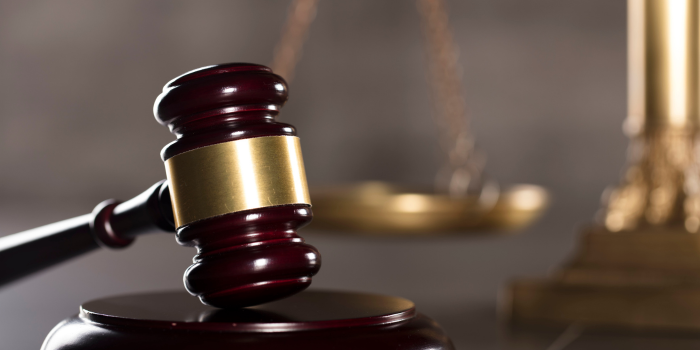Article by Holly Olarczuk-Smith, Esq.
Trial lawyers must wear several hats. Along with managing the various stages of the pre-trial process, pursuing settlement negotiations as warranted, and advocating for their clients in court, trial lawyers must also preserve issues for appeal. While no trial lawyer expects to lose, trial lawyers must acknowledge that this is a possibility, and they must take action to protect their clients accordingly.
Preserving Issues for Appeal – When Trial Counsel’s Efforts Aren’t Enough
There are right and wrong ways to preserve issues for appeal. While the Ohio Supreme Court has recognized multiple valid methods of preserving issues at trial, it has also identified several attempted means of preservation that are ineffective. For example:
- Sidebars and Arguments in the Trial Judge’s Chambers – Arguments made during sidebars or in the judge’s chambers but not in the presence of the court reporter do not serve to preserve issues for appeal. Lamar v. Marbury, 69 Ohio St.2d 274, 277, 431 N.E.2d 1028 (1982).
- Motions in Limine – Since an order granting or denying a motion in limine is a preliminary ruling, filing a motion in limine is inadequate, on its own, to preserve an issue for appeal. Gable v. Gates Mills, 103 Ohio St.3d 449, 2004-Ohio-5719, 816 N.E.2d 1049, ¶34.
- Jury Instructions – Requesting a jury instruction that the trial judge fails to provide does not itself preserve the issue for appeal. In the absence of a specific objection, the issue is deemed waived. Galmish v. Cicchini, 90 Ohio St.3d 22, 32, 734 N.E.2d 782, 792 (2000); Schade v. Carnegie Body Co., 70 Ohio St.2d 207, 209, 436 N.E.2d 1001 (1982).
- Motion for Directed Verdict – Filing a motion for directed verdict at the close of the plaintiff’s case (which the judge subsequently denies) does not result in preservation. Instead, trial counsel must also renew the motion at the close of all evidence. Williams v. Akron, 107 Ohio St.3d 203, 2005-Ohio-6268, 837 N.E.2d 1169, ¶23; Helmick v. Republic-Franklin Ins. Co., 39 Ohio St.3d 71, 74, 529 N.E.2d 464 (1988).
In these scenarios, trial counsel may assume that it will still be possible to pursue an appeal based on Ohio’s “plain error” doctrine. This doctrine serves as an exception to the general rule that issues must be preserved at trial in order to serve as grounds for an appeal.
However, the Ohio Supreme Court has stated that appeals based on “plain error” are not favored, and that the state’s appellate courts should not reverse a trial decision based on “plain effort” except in the “‘extremely rare case involving exceptional circumstances where error, to which no objection was made at the trial court, seriously affects the basic fairness, integrity, or public reputation of the judicial process, thereby challenging the legitimacy of the underlying judicial process itself.’” State ex rel. Target Auto Repair v. Morales, 168 Ohio St.3d 88, 2022-Ohio-2062, 195 N.E.3d 1027, ¶15, quoting Goldfuss v. Davidson, 79 Ohio St.3d 116, 679 N.E.2d 1099 (1997), syllabus.
Understanding the Applicable Standard of Review
In addition to understanding what works (and what doesn’t) when it comes to preserving issues for appeal, it is also important to understand the applicable standard of review. While trial counsel should generally err on the side of caution when it comes to issue preservation, having a clear understanding of the applicable standard of review can assist with determining when efforts to preserve are warranted and when they are only likely to detract from presenting an effective case at trial. In Ohio state court, the standards of review on appeal are:
- Legal Error or the Legal Sufficiency of the Evidence – No deference is given to the trial court’s ruling and the appellate court conducts its own analysis of the trial court record. This de novo standard of review applies when the court of appeals is examining a trial court’s legal interpretations and conclusions, including its rulings on motions to dismiss, for summary judgment, directed verdict and judgment notwithstanding the verdict.
- The Weight of the Evidence – When reviewing a judgment under a manifest weight of the evidence standard, the court of appeals must presume that the findings of the trier of fact are correct.
- Exercise of the Trial Court’s Discretionary Authority – Appeals challenging the trial court’s exercise of its discretionary authority (i.e., with regard to scope of pretrial discovery and admissibility of evidence) are subject to the highest standard of review. In these cases, the court of appeals must find that the trial court’s decision was unreasonable, arbitrary or unconscionable.
While these are just a few of the many considerations involved in protecting a client’s rights on appeal, they are among the most important. By making informed decisions about how and when to preserve issues for appeal, trial counsel can not only provide effective courtroom representation but maximize their clients’ chances of success should they receive an unfavorable verdict at trial.

